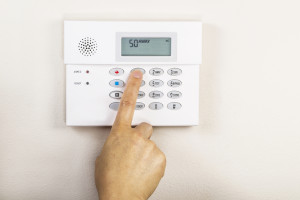As of June 1, 2016 the Suffolk County Police Department launched the Alarm Management Program, in response to the large amount of false alarms occuring across Long Island. The new program requires both commercial businesses and residential locations to register their alarm systems with the Suffolk County Police Department.
According to Christopher Hatton, Suffolk County Second Precinct Police Inspector, over 97,000 false alarms were responded to in 2015. When you multiply the cost of patrol hours by 97,000, it adds up over $2.1 million.
Any commercial or residential alarms that are not registered will immediately be charged a service fee, on the first occurrence of a false alarm. All registered locations will get two passes before being charged any fees, after two false alarms registered residential locations will be fined $100 and commercial locations $150.
What do Police consider a False Alarm?
Any activated alarm that results in a police response, where the police conclude the alarm was not caused by an attempted crime, is considered a false alarm. Any alarms that are caused by smoke, fire, or carbon monoxide are excluded from the program, and are not considered a false alarm.
How can I Register my Alarm?
If you have not registered your alarm yet, you can register by visiting the www.SuffolkPD.org website, and clicking the alarm management button on the bottom of the page.
Common Causes of False Alarms:
- Mis-entering codes.
- Pets wandering around the house.
- Equipment malfunctions.
- Environmental acts of nature (strong winds or thunder storms).
- Failing to inform friends or family of the alarm code.

*Also check out: Home Security Tips When Selling your Home.
Tips for Avoiding False Alarms:
Remember your Code: Whether your device is equipped with individual or multiple codes, it is important you create a code that each user can easily memorize and recall. If you decide to update any alarm code, make sure you inform everyone who has access. Our security consultants at Computer Controlled security recommend keeping a contact list of everyone who knows the code; this way if you decide to change it, you can simultaneously inform everyone.
Keep Windows and Doors Shut:
Keeping your windows and doors secure is not just wise for security reasons, it also helps to avoid false alarms. It is best practice to keep your windows and doors closed when the alarm is active, and always disarm your system before opening any windows or doors.
Order a Motion Sensor that is Pet Immune:
Pet immune motion sensors can be programmed to ignore the movements of small and large animals. Many people worry that by using the pet immune motion sensor it will cause the alarm to miss out on any unwanted burglaries-but this is not the case, it will still activate in the event of a regular person trying to break in.
